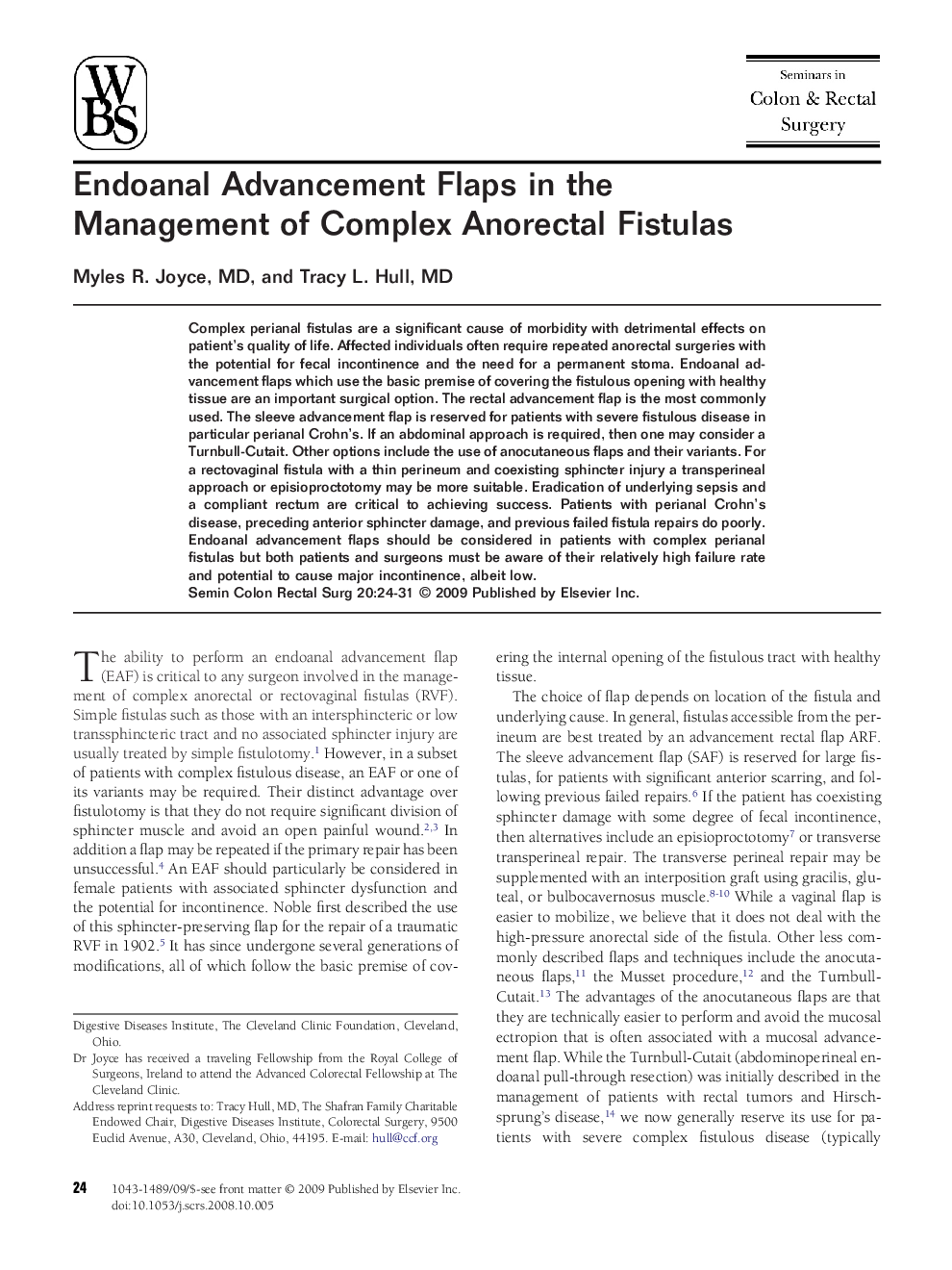| Article ID | Journal | Published Year | Pages | File Type |
|---|---|---|---|---|
| 3319541 | Seminars in Colon and Rectal Surgery | 2009 | 8 Pages |
Complex perianal fistulas are a significant cause of morbidity with detrimental effects on patient's quality of life. Affected individuals often require repeated anorectal surgeries with the potential for fecal incontinence and the need for a permanent stoma. Endoanal advancement flaps which use the basic premise of covering the fistulous opening with healthy tissue are an important surgical option. The rectal advancement flap is the most commonly used. The sleeve advancement flap is reserved for patients with severe fistulous disease in particular perianal Crohn's. If an abdominal approach is required, then one may consider a Turnbull-Cutait. Other options include the use of anocutaneous flaps and their variants. For a rectovaginal fistula with a thin perineum and coexisting sphincter injury a transperineal approach or episioproctotomy may be more suitable. Eradication of underlying sepsis and a compliant rectum are critical to achieving success. Patients with perianal Crohn's disease, preceding anterior sphincter damage, and previous failed fistula repairs do poorly. Endoanal advancement flaps should be considered in patients with complex perianal fistulas but both patients and surgeons must be aware of their relatively high failure rate and potential to cause major incontinence, albeit low.
